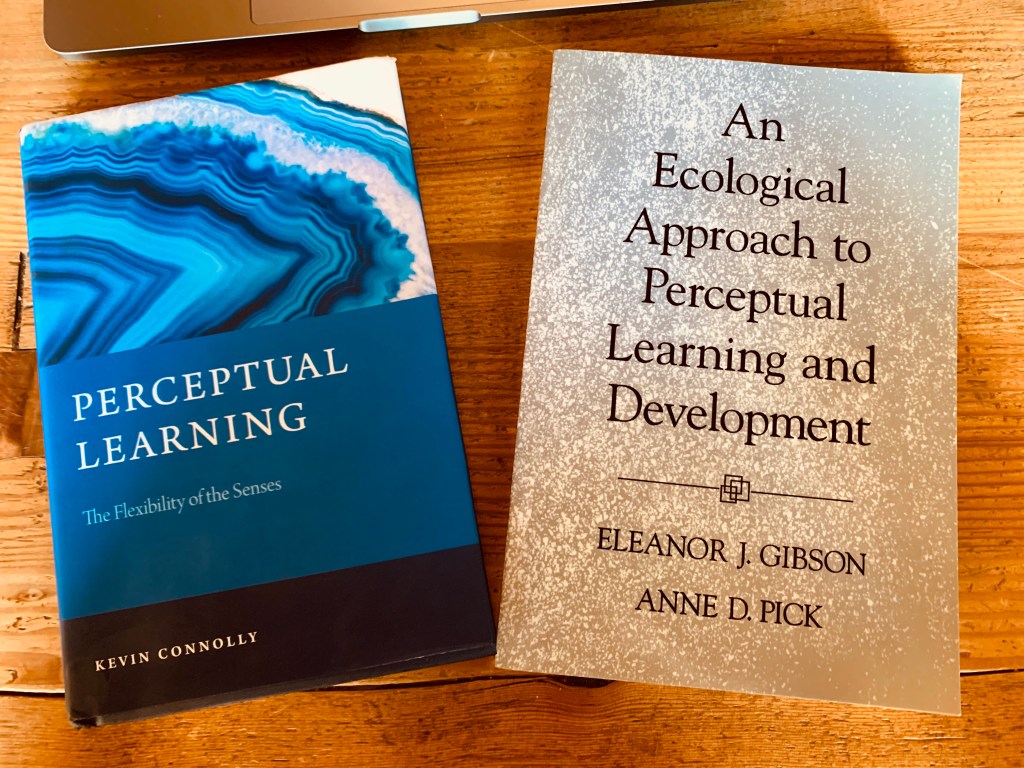
I’ll be speaking at the ( æthos ) Salon Series: Intuition as Sensemaking event on November 4. The description of my talk is below. Check out the invite link if you’re in the Bay Area and are interested in attending.
Scientists, philosophers, and contemplatives have long sought to understand the connection between rationality and intuition. In many cases, this relation has been expressed through a bifurcation of discursive, conceptual, and propositional faculties and emotional, sensory, and impressionistic ones. The former have often been associated with cognition, intelligence, and creativity, while the latter have historically taken a back seat, forced into the world of illusions, errors, and bodies. Recently, however, new fields of research have challenged this binary, suggesting that the bright line between these capacities should be rethought. Cognitive scientists and psychologists working on perceptual learning represent a leading edge of this discussion. In this talk, I will explore the basic premise of perceptual learning—namely, that embodied sensory systems are flexible, trainable, and intelligent—to reexamine the relationship between rationality and intuition. While people readily accept that humans can acquire new knowledge, concepts, and languages to influence how they generate interpretations and make inferences about their environments, I will suggest that the body’s physiology is likewise capable of learning, and that intuition has its own form of intelligence that can be developed in the direction of increasingly subtle, spontaneous, and creative engagements with the world. To this end, I will use examples from contemplative practice, art and aesthetics, and athletics to express the premise of perceptual learning. On this view, perceptual learning is a mode of intuition-making, an integral component of larger sense-making efforts that include rationality and intuition alike.
hmm, I generally think of intuition as being much narrower than non-conscious calculations/knowings in general, why frame enaction in terms of intuition and why keep up the duality of talk about reasoning and all the surrounding/enabling non-conscious behaviors when they are all interdependent/inseparable in healthy bodily functioning? Are you after something much more different than say Bert Dryefus’ work on skillful comportment or Alva’s attempts to get us out of talking only in terms of brain functions, beyond the contents of our skulls if you will?
https://en.wikipedia.org/wiki/Dreyfus_model_of_skill_acquisition
LikeLike
The interdependent functioning is of course always there, but I think there’s value to using distinct terms since, just as an example, there does seem to be a difference between actions taken as the result of explicit / discursive deliberation and those taken with out it. What I’m trying to understand is how to think of the intelligence of both sides of the line in a way that still makes sense in terms of their phenomenological / empirical character. Sorry writing on the fly with poor internet, but that’s one reason.
LikeLike
“there does seem to be a difference between actions taken as the result of explicit / discursive deliberation and those taken with out it.” indeed but I think talking about all of those “without” in terms of intuition is confusing and to talk about the explicit/reasoning as not being bodily and interdependent on the implicit/un-conscious or as opposed to it also confusing, no worries I appreciate the feedback.
LikeLike
did you catch Evan’s latest:
LikeLike
I don’t remember her name but somewhere here on yer blog I think you offered a correction to the uncs/flow models of expertise from a dancer/phenomenologist who shared how she did have moments of conscious reflection in the midst of practiced/expert performances and that’s one way that consciousness can be relevant, another perhaps (in folks like Kant, Rorty, or Foucault) is what we might want to be know as philosophical is to take a step back and question how/why we are doing what we are doing (why say this way and not another) what led to this, what infrastructures enable it, etc, so not just acting within an established routine to maximize performance but to open the possibilities of doing/being otherwise, which I think it close to Evan’s plea to not just act on faith but to be more responsible/Kantian. He doesn’t say this but I take him in his own way to be taking a stand against revelation/received-truths and I would add to accept that we are making things up as we go that there are no great social/political Truths out there to be discovered.
LikeLike